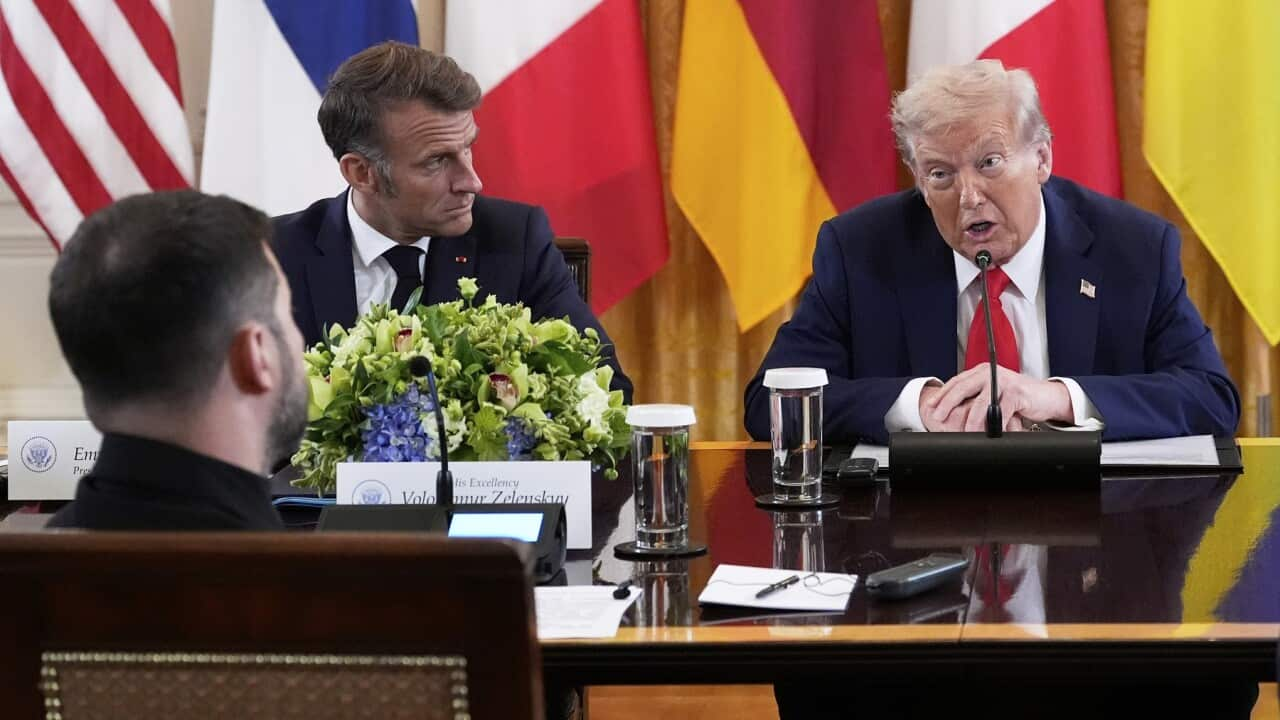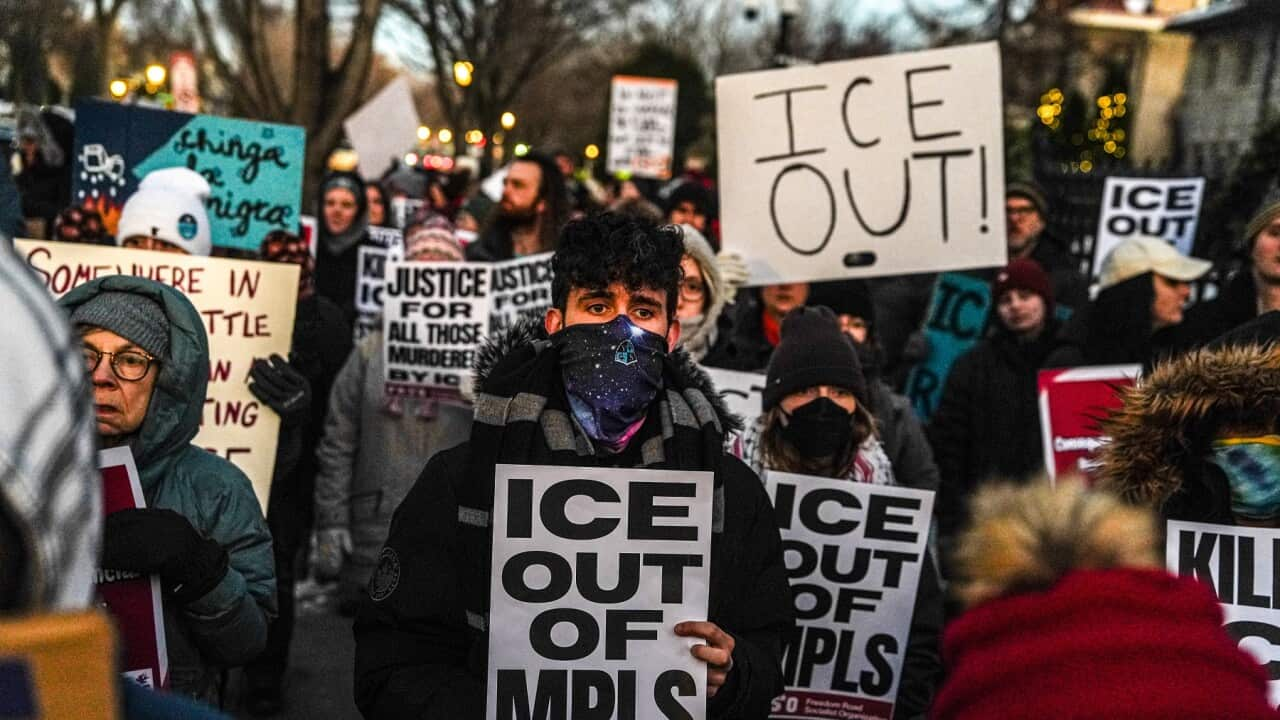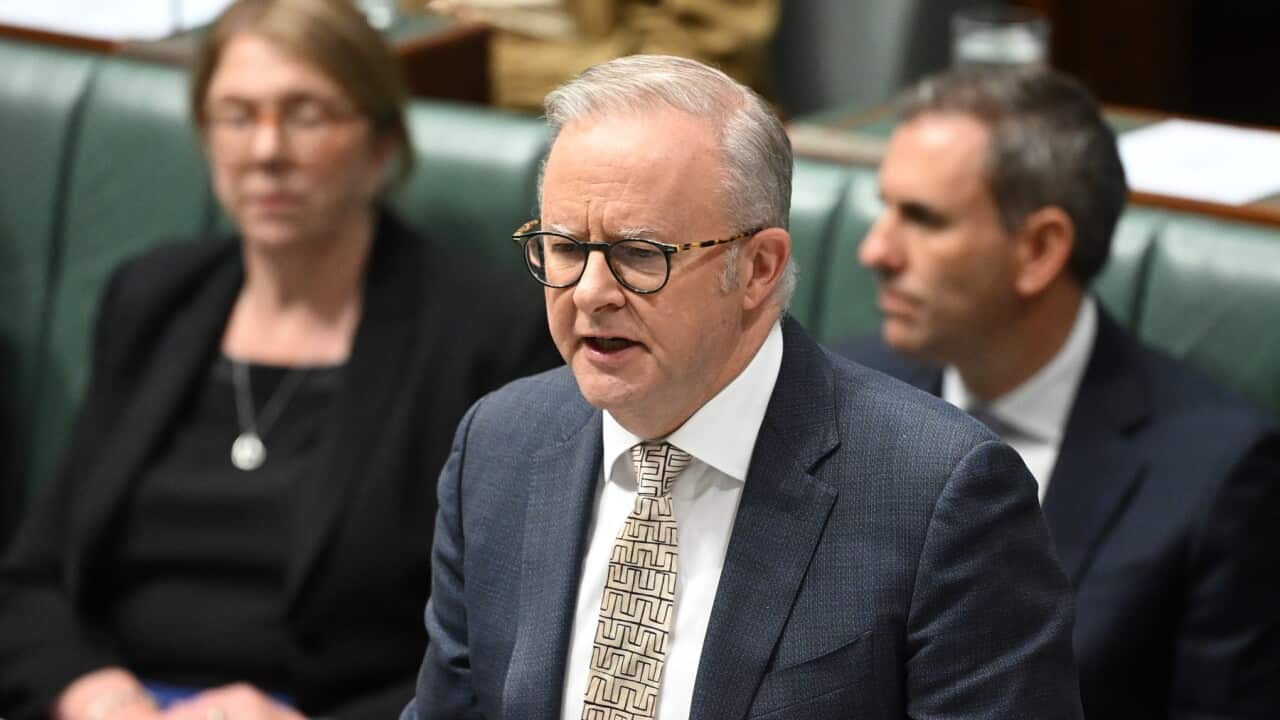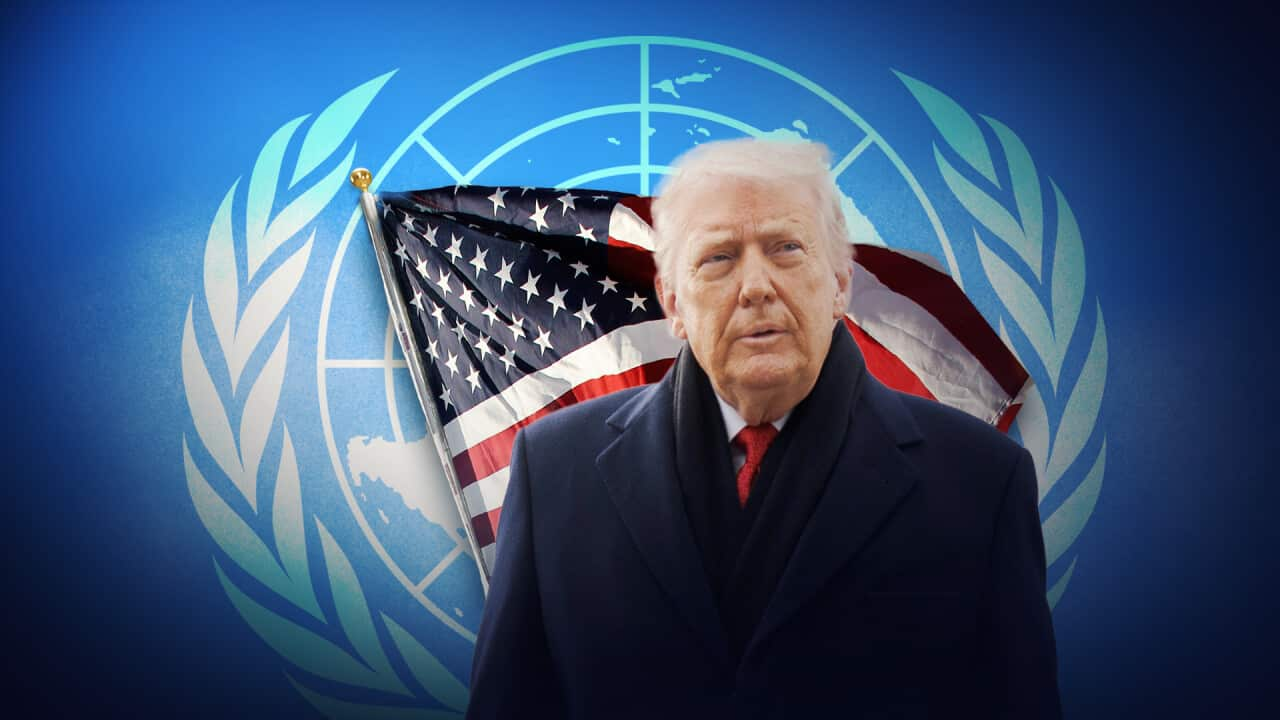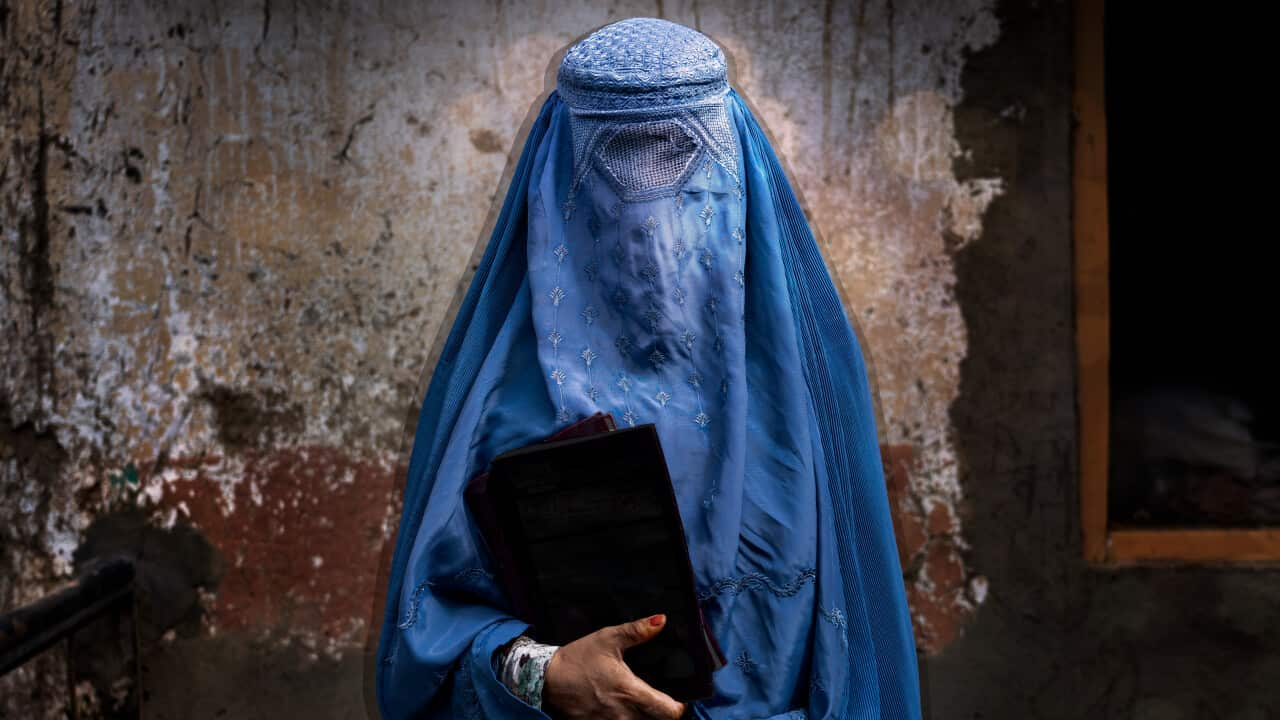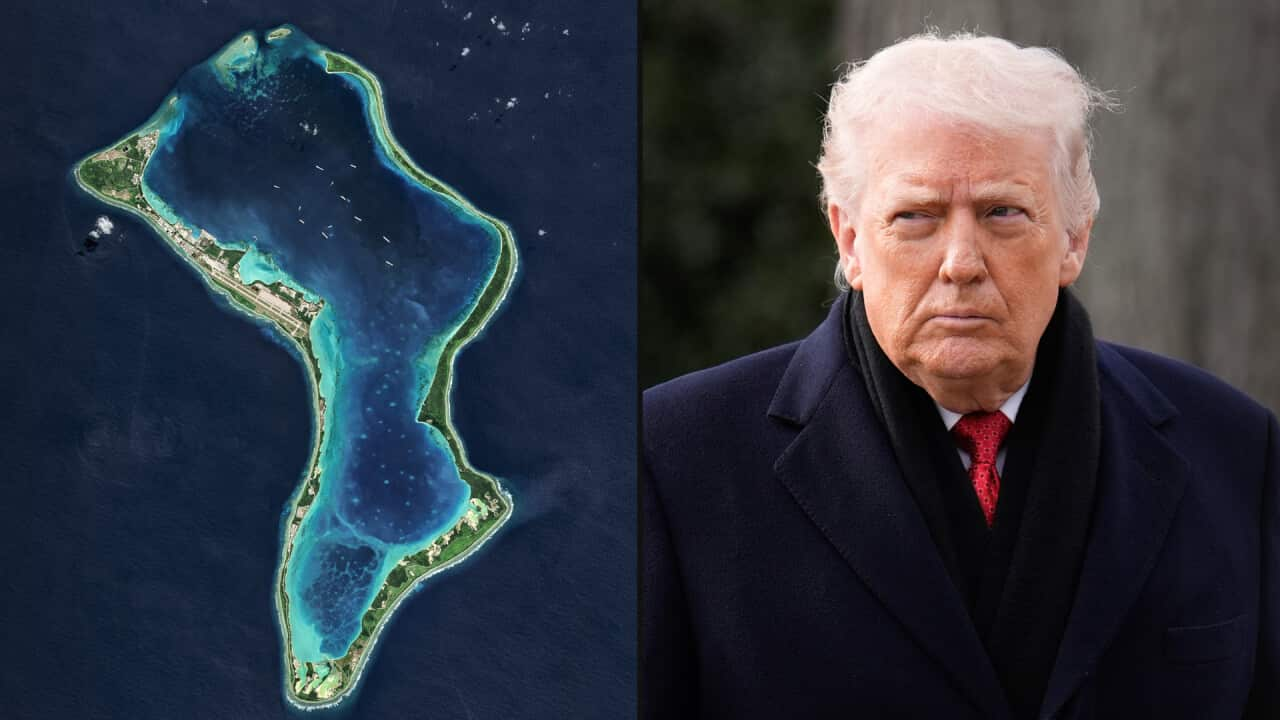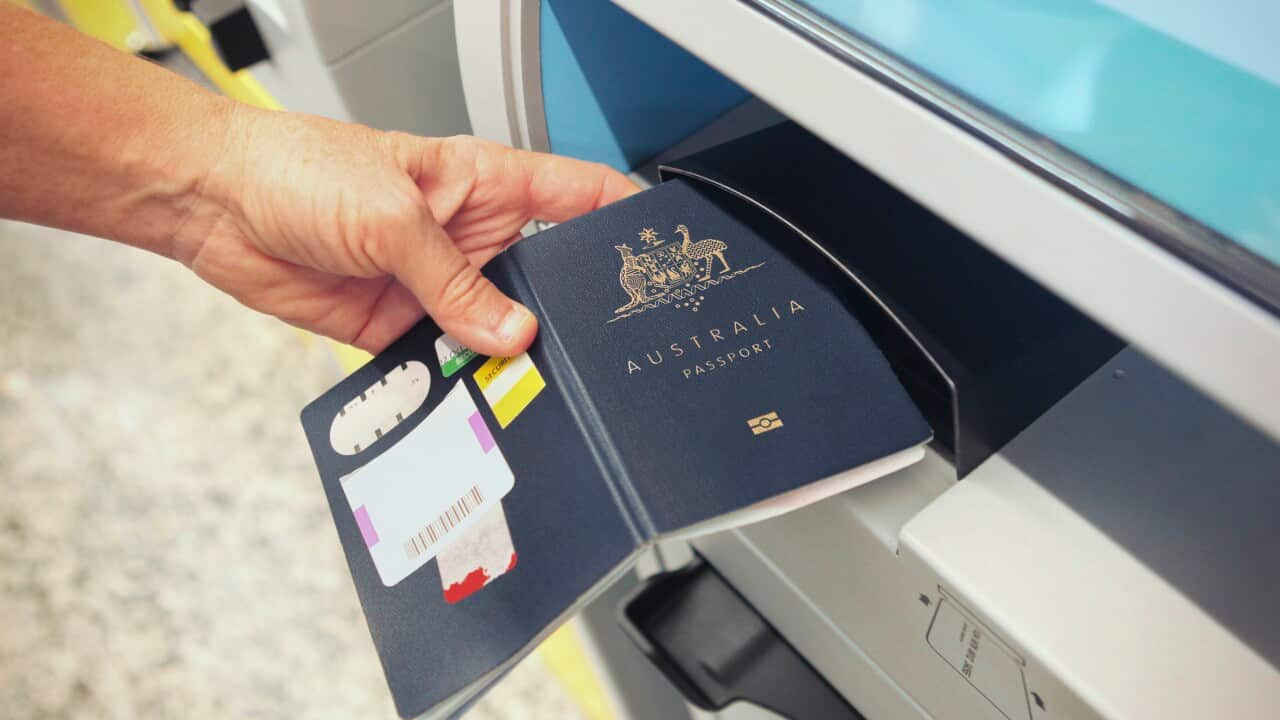Listen to Australian and world news, and follow trending topics with SBS News Podcasts.
TRANSCRIPT
United States President Donald Trump has told Ukrainian President Volodymyr Zelenskyy that the United States would help guarantee Ukraine's security in any deal to end Russia's war there, though the extent of any promised assistance was not immediately clear.
Mr Trump made the pledge during an extraordinary summit at the White House, where he hosted Mr Zelenskyy and a group of European allies.
The meeting is the first since an acrimonious row between the two men in the Oval Office in February, and comes just days after Mr Trump met with Russian President Vladimir Putin in Alaska.
Despite an apparent gulf over concessions that President Trump has pushed Ukraine to make to Russia, the US leader says he's optimistic about ending the conflict.
"We've had a lot of good discussions, a lot of good talks, and I think progress is being made, very substantial progress in many ways. We had a good meeting as you know just a short while ago with the president of Russia and I think there's a possibility something could come out of it."
But at this meeting Zelenskyy has had more support, backed by the leaders of Britain, Germany, France, Italy, Finland, the European Union and NATO, who travelled to Washington to demonstrate solidarity with Ukraine and push for strong security guarantees for the country in any post-war settlement.
President Zelenskyy says he's grateful he's had the opportunity to meet President Trump and his fellow European leaders.
"After our meeting we can have the leaders who are around us, the UK, France, Germany, Italy, Finland, EU, NATO, all partners around Ukraine, supporting us. Thanks to them and thank you very much for the invitation."
Mr Trump says he will be talking to President Putin by telephone shortly and hopes for a three-way meeting with the Kremlin leader and Mr Zelenskyy.
The Kremlin has not yet publicly accepted such a meeting, and it remains to be seen whether Mr Putin, whose forces have been slowly grinding forward in eastern Ukraine, is prepared to sit down with Mr Zelenskyy or make meaningful concessions.
Meanwhile, European leaders have urged President Trump to insist that President Putin agree to a ceasefire before any talks can advance.
German Chancellor Friedrich Merz, backed by French President Emmanuel Macron, voiced support for a ceasefire as a prerequisite to any direct talks with Russia.
"Genuine negotiations can only take place at a summit in which Ukraine itself also participates. Such a summit is only conceivable if the weapons fall silent. I have reiterated this demand today. Secondly, such a summit must be thoroughly prepared. We do not know whether the Russian president will have the courage to attend such a summit. That is why persuasion is needed."
Mr Trump has rejected claims that the Alaska summit had been a win for Putin, who has faced diplomatic isolation since Russia's invasion of Ukraine in 2022.
His team has said there will have to be compromises on both sides to end the conflict.
Mr Zelenskyy has already all but rejected the outline of President Putin's proposals from the Alaska meeting.
Those include handing over the remaining quarter of its eastern Donetsk region, which is largely controlled by Russia.
Any concession of Ukrainian territory would have to be approved by a referendum.
Mr Trump has also suggested he no longer believes reaching a ceasefire was a necessary prerequisite for striking a peace agreement.
"But we can work a deal where we're working on a peace deal while they're fighting. They have to fight. I wish they could stop, I'd like them to stop. But strategically that could be a disadvantage for one side or the other. But all of these deals I made without even the mention of the words ceasefire.”
Speaking to reporters in New York - Deputy Russian Ambassador to the United Nations, Dmitry Polyanskiy says the talks were an "an opportunity" for a long and lasting peace - but only if the world was really prepared to listen to Russia's concerns.
"We're never against discussing Ukraine. We are always open for this, but we have the impression that it is becoming more and more painful for our Western colleagues to call for such meetings (on Ukraine), because the core of the nefarious policies in Ukraine are becoming more, and more obvious. We are not presidents of the Security Council. It's up to the presidents to take such decisions. But we are always ready to discuss Ukraine. We did it from day one. Just nobody want to listen to us."The Ukraine-Russia war is Europe's deadliest war in 80 years.
Russian attacks overnight on Ukrainian cities killed at least 17 people.
The war has killed or wounded more than a million people from both sides, including thousands of mostly Ukrainian civilians, according to various sources and destroyed wide parts of the country.
